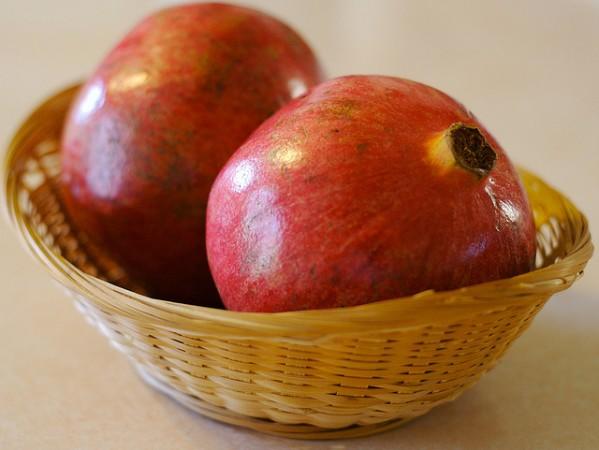
A natural compound found in pomegranate can help fight Alzheimer's disease, a progressive brain disease that leads to permanent destruction of important brain functions, including memory.
Chronic brain inflammation is known to increase the risk of Alzheimer's and accelerate its progress.
A 2012 study reported in the Journal of Neuroinflammation provided solid evidence to show the role of chronic inflammation in Alzheimer's. Another research released in 2009 recommended indomethacin, an anti-inflammatory drug for treating the brain disease.
The degenerative disease has long been directly linked to cellular waste products accumulated in the brain, including toxic proteins called beta-amyloid.
Research has shown that a blood-brain barrier transporter known as LRP helps to remove amyloid beta protein from the brain.
William A. Banks, from the Saint Louis University School of Medicine, reported in Brain Behavior and Immunity in 2009 that inflammation turned off the LRP pump and facilitated accumulation of these toxic proteins in the brain.
In the new study, experiments conducted by University of Huddersfield scientists on rat brain cells showed that punicalagin, a phenolic compound found in pomegranate, prevented inflammation in the specialised cells of brain called micrologia and prevented the destruction of brain cells.
Similar to the study, in 2006, Dr Richard Hartman from Loma Linda University in the US found that drinking pomegranate juice daily halved accumulation of proteins responsible for Alzheimer's disease.
The findings of the current study, reported in Molecular Nutrition & Food Research, arrive at a time when scientists are yet to develop an effective cure for the brain condition.
Early this year, scientists from the Icahn School of Medicine at the Mount Sinai Hospital in the US found that cocoa extracts were promising for reducing formation of Aβ oligomers, the group of molecules that glue together to form tangles, and improving the synaptic function. Synapses are the space between neurons. Loss of synaptic function damages brain cells and destroys memory.
Most of the anti-oxidant compounds in pomegranate are found in the skin, but eating the fruit regularly can also provide unlimited health benefits, including fighting conditions triggered by inflammation, like cancer, rheumatoid arthritis and Parkinson's, the British and German scientists, who worked behind the study said.
"But we do know that regular intake and regular consumption of pomegranate has a lot of health benefits – including prevention of neuro-inflammation related to dementia," researcher Dr Olumayokun Olajide, from the University of Huddersfield, said in a University statement, and added that pure pomegranate juices contain 3.4 percent of punicalagin.
As a next step, the researchers plan to develop an oral drug for neuro-inflammation from punicalagin.
Here are Some Other Reasons to Eat Pomegranate Daily
Apart from punicalagin, the fruit is also a rich source of vitamins C, K and B5; and other important nutrients and minerals like calcium, iron, zinc, magnesium and phosphorous.
Following are some other scientifically-proven health benefits of pomegranate:
- Drinking pomegranate juice can lower stress
- Protects against cancer
- Lowers risk of heart diseases
- Prevents constipation, helps digestion
- Helps increase appetite
- Helps shed excess fat
- Improves sex life
- Slows down ageing
- Helps prevent impotency
- Lowers risk of breast cancer

















